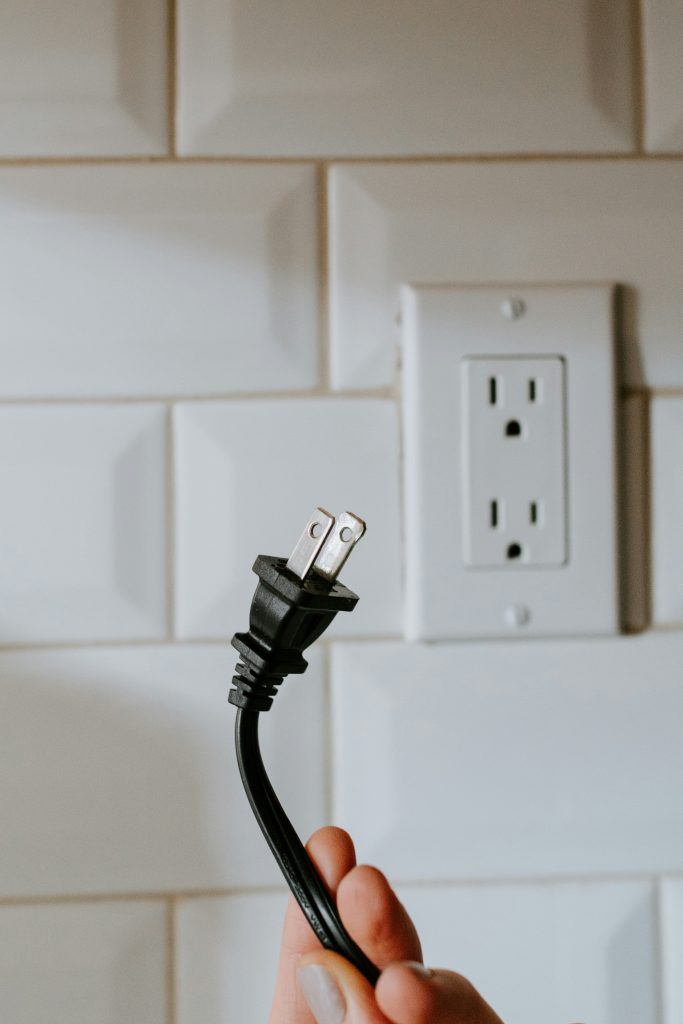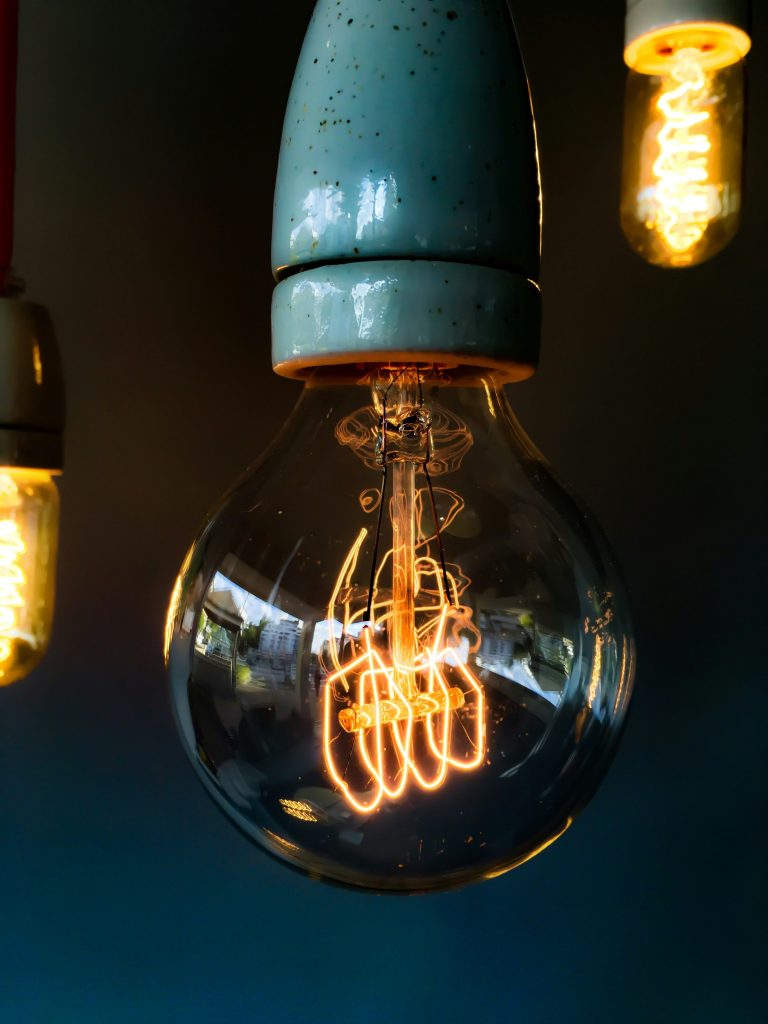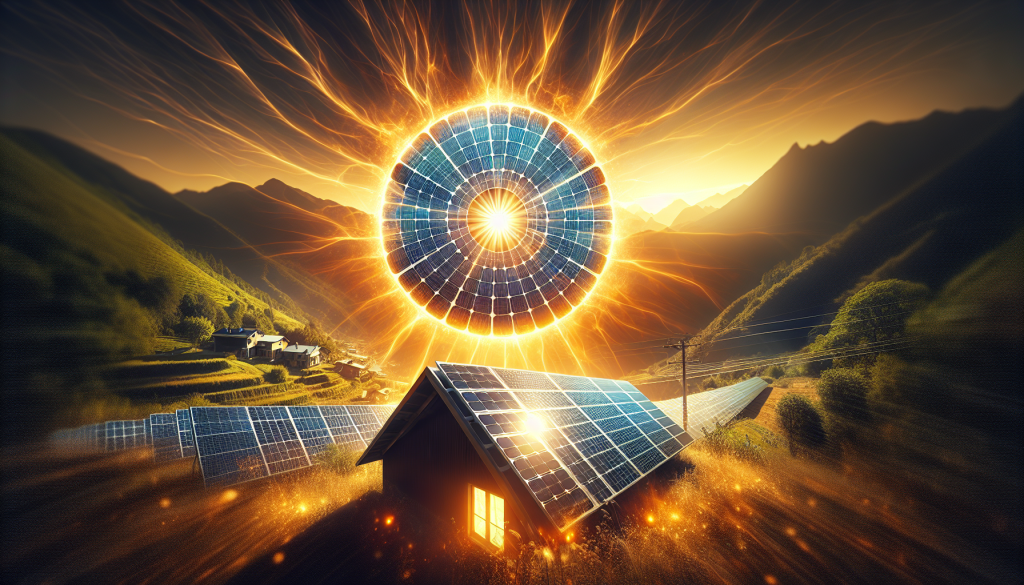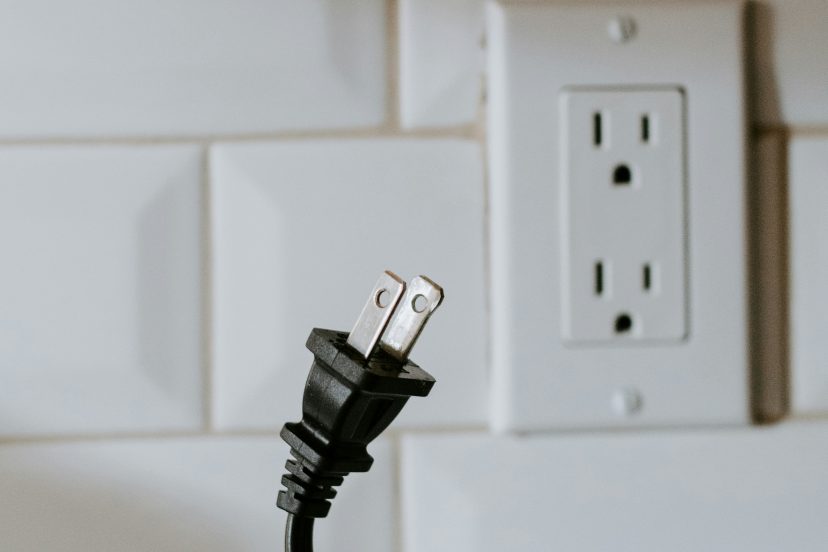How To Use Solar Panels During Power Outage
As an Amazon Associate, I earn from qualifying purchases, at no additional cost to you. Disclaimer
I’ve always been fascinated by solar power and its potential to provide clean energy. Recently, I found myself in a situation where a major power outage left me without electricity for an extended period. Luckily, I had installed solar panels on my roof a few years back, and they proved to be a lifesaver during this time of crisis. In this article, I will share my experience and provide some practical tips on how to effectively use solar panels during a power outage. Trust me, harnessing the power of the sun when the lights go out is easier than you might think! Stay tuned as I reveal the secrets to navigating a blackout with the help of solar energy.

Understanding Solar Panel Systems
Solar panel systems are an increasingly popular form of renewable energy that harnesses the power of the sun to generate electricity. These systems consist of solar panels, which are made up of photovoltaic cells that convert sunlight into usable electricity. Understanding the basics of how solar panels work is essential for maximizing their benefits, both during normal conditions and, most importantly, during power outages.
Basics of Solar Panels
Solar panels are composed of countless photovoltaic cells, which are made of semiconducting materials such as silicon. These cells absorb sunlight and convert it into direct current (DC) electricity through the photovoltaic effect. This DC electricity is then converted into alternating current (AC) electricity using an inverter, which makes it compatible with the electrical appliances in our homes. The power generated can either be used immediately or stored in batteries for later use.
Off-grid vs On-grid Systems
There are two main types of solar panel systems: off-grid and on-grid. Off-grid systems, also known as standalone systems, are independent from the electrical grid. They operate by storing excess electricity in batteries to power the home during periods of low sunlight or power outages. On the other hand, on-grid systems are connected to the electrical grid, allowing homeowners to both consume electricity from the grid and sell excess electricity back to the grid. However, during a power outage, on-grid systems typically do not operate to ensure the safety of workers repairing power lines.
Hybrid Solar Systems
In recent years, a third type of solar panel system has emerged – hybrid solar systems. These systems combine the best of both off-grid and on-grid systems. Hybrid systems are connected to the electrical grid but also have battery storage capabilities. During normal conditions, they can use solar power and only rely on the grid when needed. However, during a power outage, these systems can still operate independently by utilizing the stored energy in their batteries.
Components of Solar Power Systems
Solar power systems consist of several key components. First and foremost are the solar panels themselves, which are typically installed on the roof or in an area with maximum exposure to sunlight. These panels are connected to inverters, which convert the DC electricity produced by the panels into AC electricity that can be used in homes. In off-grid systems, batteries are used to store excess electricity for use during a power outage. Other components include charge controllers, which regulate the charging of the batteries, and meters to monitor the system’s performance.
How Solar Panels Work During an Outage
During a power outage, solar panel systems can still provide electricity, but the way they operate depends on whether they are on-grid or off-grid systems.
Operation of On-grid Systems During Power Outage
On-grid systems are designed to shut off automatically during a power outage to protect workers who may be repairing power lines. This is to avoid any excess solar energy being fed back into the grid and potentially causing harm. Therefore, even if you have a solar panel system installed, you will not have access to electricity from it during a power outage unless you have a hybrid system with battery storage capabilities.
Operation of Off-grid Systems During Power Outage
Off-grid systems, on the other hand, are designed to operate independently from the grid, making them ideal for power outages. These systems use batteries to store excess solar energy generated during the day. When a power outage occurs, the energy stored in the batteries can be utilized to power essential appliances and keep lights on. However, it’s important to note that the capacity of the battery and the amount of energy stored will determine the duration and extent to which your home can rely on solar power during an outage.
Role of Inverters in a Power Outage
In both on-grid and off-grid systems, inverters play a crucial role. They convert the DC electricity generated by the solar panels into AC electricity, which is the form of electricity used in homes. In the case of off-grid systems, inverters also regulate the charging of the batteries when there is excess solar energy. During a power outage, inverters in off-grid systems ensure that the stored energy in the batteries is converted into usable AC electricity for your home’s appliances.
Power Production and Consumption Balance
During normal conditions, solar panels generate electricity that is used immediately in the home. Any excess electricity is either stored in batteries or fed back into the grid in on-grid systems. However, during a power outage, the balance between power production and consumption becomes critical. It is important to assess your energy needs and ensure that your solar panel system can provide enough electricity to power essential appliances until the power is restored. This can be achieved through proper sizing of the system, efficient energy usage, and maintenance of the batteries to maximize their capacity.

Preparing Your Solar Panel System for a Power Outage
To ensure your solar panel system is ready to provide electricity during a power outage, it is essential to perform regular maintenance, check inverters and batteries, and maintain continuity of power supply.
Maintenance of Solar Panels
Regular maintenance of solar panels is important to ensure their optimal performance. This includes periodic cleaning to remove any dirt, debris, or shading that may obstruct sunlight absorption. It is recommended to clean the panels with water and a soft brush to avoid scratching the surface. Additionally, inspecting panels for any signs of wear or damage and promptly addressing any issues can prolong their lifespan. Proper maintenance not only enhances the efficiency of the solar panel system but also ensures that it can operate effectively during power outages.
Checking Inverters and Batteries
Inverters and batteries are critical components of a solar panel system, particularly during power outages. Regularly checking the inverters for any faults or errors will help ensure they are functioning properly. In addition, monitoring the charge level and condition of the batteries is vital to ensure they are ready to provide power during an outage. If any issues or abnormalities are detected in the inverters or batteries, it is important to seek professional assistance to resolve them promptly.
Ensuring Continuity of Power Supply
It is essential to maintain continuity of power supply in your solar panel system to be prepared for a power outage. This involves ensuring that the system is properly connected to your home’s electrical supply and that the necessary switches or transfer switches are installed to facilitate the use of solar power during an outage. Regularly testing the system’s ability to switch seamlessly between grid power and solar power is also recommended. By maintaining a seamless power supply, you can rely on your solar panel system to provide electricity when you need it the most.
Using Solar Panels During Power Outage
During a power outage, solar panels can be an invaluable resource for providing electricity. Here are some steps to effectively utilize solar power during an outage:
Steps to Utilize Solar Power during an Outage
- Ensure that your solar panel system is functioning properly and capable of generating electricity.
- Determine your essential power needs and prioritize which appliances and devices you need to operate during the outage.
- Disconnect your solar panel system from the grid to avoid any potential safety hazards.
- Check that your batteries are charged and have sufficient capacity to power your essential appliances.
- Connect the batteries to an inverter that can convert the stored DC electricity into usable AC electricity.
- Connect your essential appliances to the inverter’s outlets or circuits and turn them on one by one.
- Monitor the battery levels and adjust the usage of appliances accordingly to maximize the duration of power supply.
Considerations for Safety
While utilizing solar power during a power outage, it is essential to keep safety in mind. Here are a few considerations to ensure a safe experience:
- Never attempt to connect your solar panel system to the grid during a power outage as it can pose serious safety risks to you and utility workers.
- Adhere to all safety guidelines provided by the manufacturer and consult with a professional if you are unsure of any aspect of your solar panel system.
- Place a clear label near the system’s main disconnect switch to ensure everyone in your household is aware of how to safely switch between solar power and grid power.
- Be cautious when handling batteries, as they can contain hazardous materials. Follow proper handling procedures and dispose of batteries responsibly according to local regulations.
Meeting Essential Power Needs
During a power outage, it is crucial to prioritize your power needs to ensure you have electricity for essential appliances. These may include refrigerators, freezers, medical devices, heating or cooling systems, cell phone chargers, and emergency lighting. By identifying and meeting these essential power needs, you can ensure the safety and comfort of your household during an outage.

Role of Solar Batteries during a Power Outage
solar batteries play a critical role in providing power during a power outage. Understanding how they function and maintaining them properly is essential for ensuring a reliable backup power source.
Functionality of Solar Batteries
Solar batteries store excess electricity generated by the solar panels for later use. They allow you to store solar energy during the day when the panels are producing more electricity than your household is consuming. This stored energy can then be used during periods of low sunlight or power outages.
How Solar Batteries Supply Power in Outage
During a power outage, solar batteries act as a backup power source by providing stored electricity to your home. When the solar panels are not producing enough electricity due to low sunlight, the batteries discharge and supply power to essential appliances. The batteries continue to provide power until either the solar panels begin generating sufficient electricity or the stored energy in the batteries is depleted.
Charging and Maintaining Solar Batteries
To ensure the reliability of solar batteries during a power outage, it is important to charge and maintain them properly. Charging is typically automatic in solar panel systems, with excess solar energy directed to the batteries. However, it is recommended to check the charging status regularly and make adjustments as needed to optimize the battery storage capacity.
Maintaining solar batteries involves monitoring their charge levels and addressing any issues promptly. It is important to keep the batteries clean and free from dust or debris that may reduce their performance. Additionally, regular inspections for signs of wear or damage and prompt replacement of faulty batteries are essential for the overall functionality and longevity of the solar panel system.
Integration of Generators with Solar Panel Systems
In scenarios where solar panel systems alone may not be sufficient to meet power needs during an extended power outage, integrating generators can provide an additional source of backup power.
Using a Generator as a Backup
Generators are commonly used as backup power sources during power outages. They can be fueled by various types of energy, such as gasoline, diesel, or propane. When integrated with a solar panel system, a generator can supplement the power supply, especially when prolonged power outages occur or during periods of low sunlight.
Connecting a Generator to the Solar System
To connect a generator to a solar panel system, it is crucial to follow specific guidelines to ensure safe and efficient operation. A transfer switch or an interlock device is typically used to prevent backfeeding of electricity into the grid, which could pose safety hazards to utility workers. Professional assistance may be required to properly install the switch or device and ensure that the generator and solar system are compatible.
Safety Measures when dealing with Generators
When using generators as a backup power source, it is important to prioritize safety. Here are a few safety measures to keep in mind:
- Never operate a generator indoors or in an enclosed area, as it produces carbon monoxide gas, which can be fatal.
- Follow all manufacturer guidelines for the safe operation, fueling, and maintenance of your generator.
- Ensure that the generator is properly grounded to prevent electric shock hazards.
- Store any fuel for the generator safely, away from flammable materials and in approved containers.

Government Policies and Grid Regulations
Understanding government policies and grid regulations pertaining to solar panels is important, especially when considering their use during power outages.
Understanding Anti-Islanding Rules
Anti-islanding rules are regulations designed to prevent solar panel systems from energizing the grid during a power outage. These rules are in place to protect utility workers who may be repairing power lines, as the influx of solar energy could endanger their safety. Anti-islanding mechanisms within solar panel systems automatically disconnect them from the grid during an outage, ensuring compliance with these regulations.
Legal Considerations for Self-supply of Power during Outages
In some areas, there may be legal considerations surrounding the self-supply of power during outages. It is important to familiarize yourself with local regulations and requirements to ensure compliance when utilizing solar power as a backup during a power outage. Consulting with a professional or contacting your local utility company can provide you with specific information relevant to your region.
Government Incentives for using Solar Panels
Many governments recognize the benefits of solar panels and offer incentives to encourage their adoption. These incentives can include tax credits, rebates, or grants to offset the costs of installing solar panel systems. Additionally, some utility companies offer net metering programs, allowing homeowners to earn credits for the excess electricity they generate and feed back into the grid. Exploring these incentives can make solar panel systems more accessible and financially viable for homeowners.
Economic Considerations
Alongside the environmental benefits, solar panel systems offer numerous economic advantages, including energy bill savings and cost-benefit analysis during power outages.
Costing of Solar Panel Systems
The cost of installing a solar panel system can vary depending on several factors, such as the size of the system, the quality of components, and installation complexities. It is important to obtain quotes from reputable solar installers and consider both the upfront costs and the long-term savings when evaluating the economic feasibility of solar panels.
Savings on Energy Bills
One of the primary economic benefits of solar panel systems is the savings on energy bills. By generating electricity from the sun, homeowners can reduce their reliance on the electrical grid and lower their monthly energy expenses. This is particularly advantageous during periods of high electricity consumption, such as during summer months or when using air conditioning or heating systems.
Cost-Benefit Analysis of using a Solar Power System during Outages
When considering the use of solar panel systems during power outages, performing a cost-benefit analysis can help assess their economic viability. This analysis involves comparing the costs associated with installing and maintaining the solar panel system with the potential savings on energy bills and the value of uninterrupted power supply during outages. Factors such as the frequency and duration of outages, the capacity of the system, and the costs of alternative backup power solutions should be taken into account to make an informed decision.

Advanced Solutions for Power Outages
Advancements in technology have led to the development of advanced solutions for power outages, ensuring more reliable and efficient utilization of solar panel systems.
Smart Home Energy Systems
Smart home energy systems integrate various technologies to optimize energy usage and storage within a household. These systems can intelligently manage the flow of electricity from solar panels to various appliances, prioritize power supply during outages, and even automatically switch between grid power, solar power, and backup power sources. By utilizing advanced monitoring and control mechanisms, smart home energy systems enhance the overall efficiency and reliability of solar panel systems during power outages.
Advancements in Battery Storage Solutions
Battery storage solutions have witnessed significant advancements in recent years, improving the reliability and capacity of solar panel systems during outages. Lithium-ion batteries, in particular, have become increasingly popular due to their high energy density and ability to deliver power quickly. These advancements in battery technology have made storing solar energy more efficient and accessible, ensuring a stable power supply even during extended power outages.
Impact of Renewable Energy Trends on Power Outages
The increasing adoption of renewable energy, including solar power, has the potential to transform the way we deal with power outages. As more households and businesses embrace solar panel systems, the overall demand for grid electricity during outages may decrease. This can lead to improved resilience of the electrical grid and a reduction in the duration of power outages. Additionally, advancements in renewable energy infrastructure can facilitate the integration of solar panels into microgrids, enabling localized power generation and supply in times of emergencies.
Conclusion: Solar Panels and Power Outages
In conclusion, solar panels offer a reliable and sustainable solution for generating electricity during power outages. Understanding the basics of solar panel systems, the role of batteries and inverters, and the different types of systems available is crucial for maximizing their benefits. By properly maintaining and preparing your solar panel system, utilizing solar power effectively during outages, and considering backup options such as generators, you can ensure a continuous power supply for essential appliances in your home. With government incentives, advancements in technology, and a cost-benefit analysis, solar panel systems become an increasingly attractive option in relation to power outages. As we continue to embrace renewable energy trends, solar panels are poised to play a crucial role in enhancing resilience, reducing reliance on the electrical grid, and providing a sustainable solution for power generation during outages. The future outlook of solar panels in relation to power outages is promising, and with continued advancements and support, they will become an integral part of our energy infrastructure.

